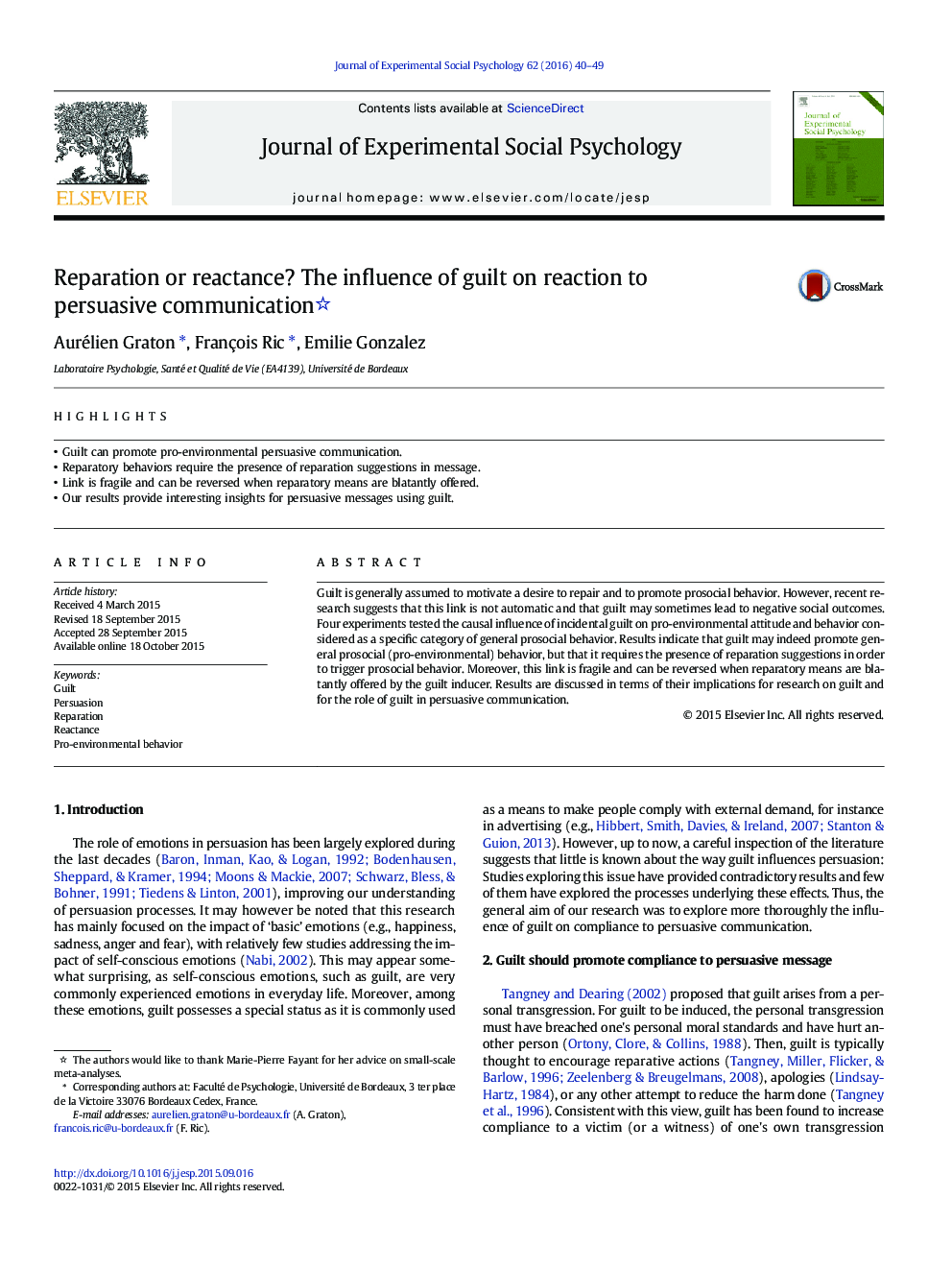| Article ID | Journal | Published Year | Pages | File Type |
|---|---|---|---|---|
| 947679 | Journal of Experimental Social Psychology | 2016 | 10 Pages |
•Guilt can promote pro-environmental persuasive communication.•Reparatory behaviors require the presence of reparation suggestions in message.•Link is fragile and can be reversed when reparatory means are blatantly offered.•Our results provide interesting insights for persuasive messages using guilt.
Guilt is generally assumed to motivate a desire to repair and to promote prosocial behavior. However, recent research suggests that this link is not automatic and that guilt may sometimes lead to negative social outcomes. Four experiments tested the causal influence of incidental guilt on pro-environmental attitude and behavior considered as a specific category of general prosocial behavior. Results indicate that guilt may indeed promote general prosocial (pro-environmental) behavior, but that it requires the presence of reparation suggestions in order to trigger prosocial behavior. Moreover, this link is fragile and can be reversed when reparatory means are blatantly offered by the guilt inducer. Results are discussed in terms of their implications for research on guilt and for the role of guilt in persuasive communication.
